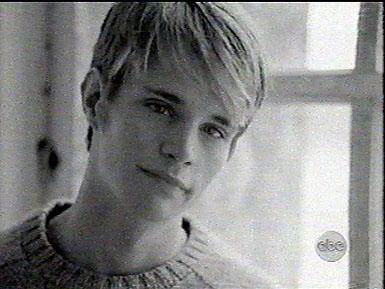
Last night my little San Francisco Episcopal church held a memorial mass for Matthew Shepard and all victims of violence. For anyone who has forgotten, Shepard was a college student who was gay-bashed and left to die hung on a fence outside Laramie, WY in October, 1998. I found the service unexpectedly moving and thought provoking.
Less well known among the facts of his short life, Shepard was raised an Episcopalian. And he was also an activist for justice; his father reminisces that "the hope of a better world, free of harassment and discrimination because a person was different, kept him motivated."
In the sermon last night, the priest, himself gay, spoke feelingly of how "this could have been any of us." That assertion might seem improbable to an outside observer. Though this little congregation is full of gay men and lesbians, it is also largely older, middle class, employed, including many homeowners in a city where owning a house is close to having wealth. This is not some bunch of scruffy outsiders. If gay people can be ordinary, we're it.
And yet the fear of anti-gay violence about which the priest spoke is real. There are individuals who are so distressed by the very existence of gay people that they will try to maim us. And there are a lot of other people who don't want to know that or take the threat seriously. And there are important institutions including churches that do not exactly preach hate, but do treat gays as radically Other, outcasts from their human family.
When I was younger, I felt that fear all the time. When I worked in construction I had to wonder; would one of the guys I worked around make a "mistake" that could injure "the girl," "the dyke"? Now that I am a post-menopausal woman, mostly working in positions of some authority, the fear has receded. But when I visit a small town, I still wonder if my very existence is an offense to those I meet. I don't think straight people know that fear, unless they are members of racial minorities. That's what makes a church service marking dreadful events so potent; it offers a chance for people to stand together, repudiating the fear.
Sometimes dramatic events rip the cover off social realities that we usually look away from. Matthew Shepard's murder made anti-gay violence visible, just as Hurricane Katrina showed us the terrible poverty in which some US people, especially Black people, live their whole lives.
For anyone interested, I'm posting the quite thought provoking prayers we used last night in a diary at Street Prophets.
No comments:
Post a Comment